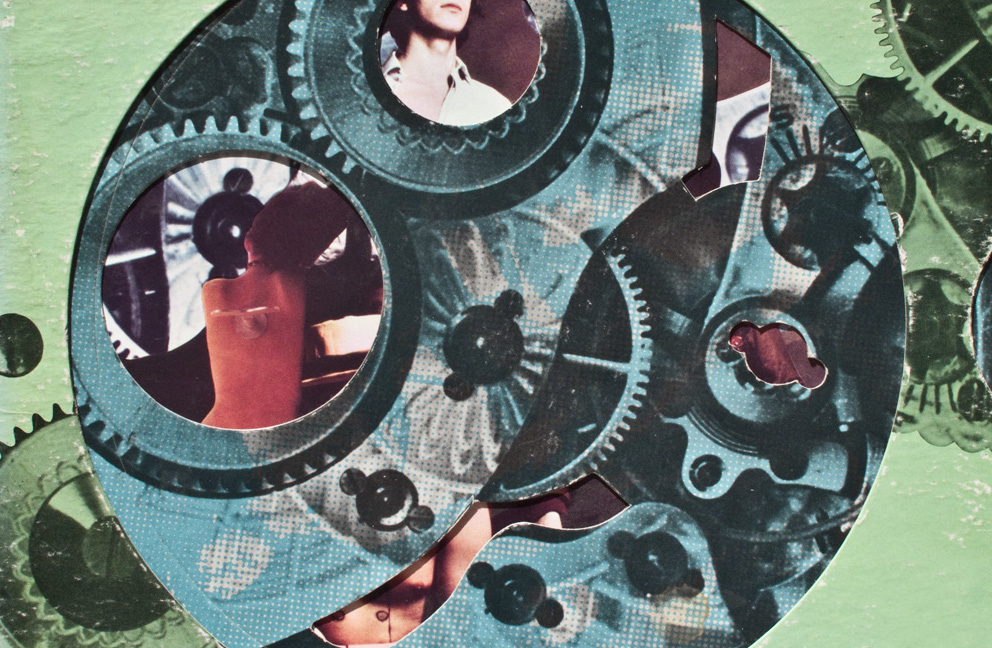Since the group’s inception in 1966, more than twenty talented musicians have called themselves members of the world-renowned jazz and rock outfit Soft Machine. While such a statement might strike fear into the heart of an ill-prepared music historian, it also opens the door to a world of musical discovery for the intrepid listener! With today’s esteemed line-up featuring three of the band’s 1970’s-era members: guitarist John Etheridge, drummer John Marshall and bassist Roy Babbington alongside two-year member Theo Travis on saxophone; we thought it fit to root our fourfold exploration of their musical mind map with those same band members. Hopefully you’ll discover some music that’s refreshing to your ears and convinces you to head and see these remarkable players live at Band on the Wall later in the month.
Pathway no. 1: John Marshall, Nucleus and the MPS records connection
Drummer John Marshall was the first of Soft Machine’s current membership to join the group, doing so in 1972 at the age of thirty. At the time of joining, he had already gained a tremendous amount of playing experience with Alexis Korner and Graham Collier, but most significantly, had made sizeable artistic contributions to the group Nucleus, a pioneering jazz-rock band led by trumpet player Ian Carr. Acknowledging Carr’s intention to break away from commonalities within jazz composition and performance, Marshall put ‘a rock feel’ to a composition of Ian’s during an early group rehearsal, and in pleasing Carr with the groove, helped steer the direction of the project.
The first sound on the group’s first LP Elastic Rock is that of Marshall rifling into fragmented roll, before being joined by the horns and uniting with the full band on the subdued yet electrified title track. It’s a sound that’ll instantly resonate with fans of later seventies Softs!
Outside of Nucleus, and having joined Soft Machine, Marshall wasn’t tied down to the one project and continued collaborations with figureheads of U.K. fusion while branching out with overseas artists. His playing on the exemplary Helen 12 Trees, featuring electric keys wizard Jan Hammer and Cream bassist Jack Bruce alongside Charlie Mariano, is a highlight of the five studio albums to which he contributed for German label MPS and shows why he was in such high demand!
Related listening: Ian Carr with Nucleus – Solar Plexus (Vertigo, 1971), Morning Glory ft. John Surman, John Marshall, Terje Rypdal, Chris Laurence, John Taylor and Malcolm Griffiths – Morning Glory (Island, 1973), Charlie Mariano – Helen 12 Trees (MPS, 1976), Volker Kriegel – Inside: Missing Link (MPS, 1972)
Pathway no. 2: Roy Babbington and the British jazz continuum
If your preference is for less of the rock and more of the jazz and avant-garde, then bassist Roy Babbington’s place within the British jazz continuum should introduce you to some fantastic ‘new’ music. He joined Soft Machine formally in 1973, having already gained renown as an upright and electric bassist and having contributed on the former instrument to Soft Machine’s Fourth and Fifth. His session work as an upright bassist saw him contributing to a wide variety of jazz albums, among which are the eccentrically composed and illustrated Keith Tippett Group release Dedicated to You, But You Weren’t Listening and Stan Tracey’s suite inspired by inventor Samuel Crompton. As well as Tracey’s sextet, Babbington played with several other acclaimed UK jazz outfits, such as Barbara Thompson’s Paraphernalia.
Related listening: Keith Tippett Group – Dedicated to You, But You Weren’t Listening (Vertigo, 1971), Stan Tracey Sextet – The Crompton Suite (Steam, 1981)
Pathway no. 3: John Etheridge, seventies rarities and withdrawals
If you like your rare and hard-to-find titles, then guitarist John Etheridge is the musician to begin with. He’d cut four albums with the underappreciated Darryl Way’s Wolf prior to joining Soft Machine and also been a part of the Icarus line-up who, mutually enamoured by Marvel Comics, decided to create a concept album based around their heroes, which was swiftly withdrawn by the Pye International when Marvel demanded a 50% royalty share.
The Icarus release is eccentric psych-prog with lashings of fuzzy guitar, while Darryl Way’s Wolf bares a closer resemblance to the band’s counterparts from Canterbury and the Didier Lockwood rarity to which he contributed in ‘79 is a jazzy crown to the triplet, further highlighting Etheridge’s diversity as a guitarist.
Related listening: Darryl Way’s Wolf – Night Music (Deram, 1974), Didier Lockwood – New World (MPS, 1979), Icarus – The Marvel World of Icarus (Pye International, 1972)
Pathway no. 4: Theo Travis, unreleased electronica and high-profile collaborations
With Babbington and Marshall twenty years his senior; Theo Travis’ musical history doesn’t stretch back quite as far as his bandmates’, but it is still one littered with interesting collaborations and solo work. Steven Wilson, one of the most respected writers and producers of progressive rock in the modern era, entrusted to remaster works by XTC, Jethro Tull and Gentle Giant, has been calling upon his services for over a decade. He featured on Wilson’s once cassette-only collection Unreleased Electronic Music Vol. 1, but later studio albums like The Raven that Refused to Sing, better exemplify his virtuosic saxophone and flute work.
Further to that notable collaboration, Travis has worked with Robert Fripp, guitarist with King Crimson and later David Bowie and played live with everyone from trip-hop pioneer DJ Krush to new age composer Harold Budd.
Related listening: Steven Wilson – The Raven that Refused to Sing (Kscope, 2013), Travis & Fripp – Thread (Panegyric, 2008)



